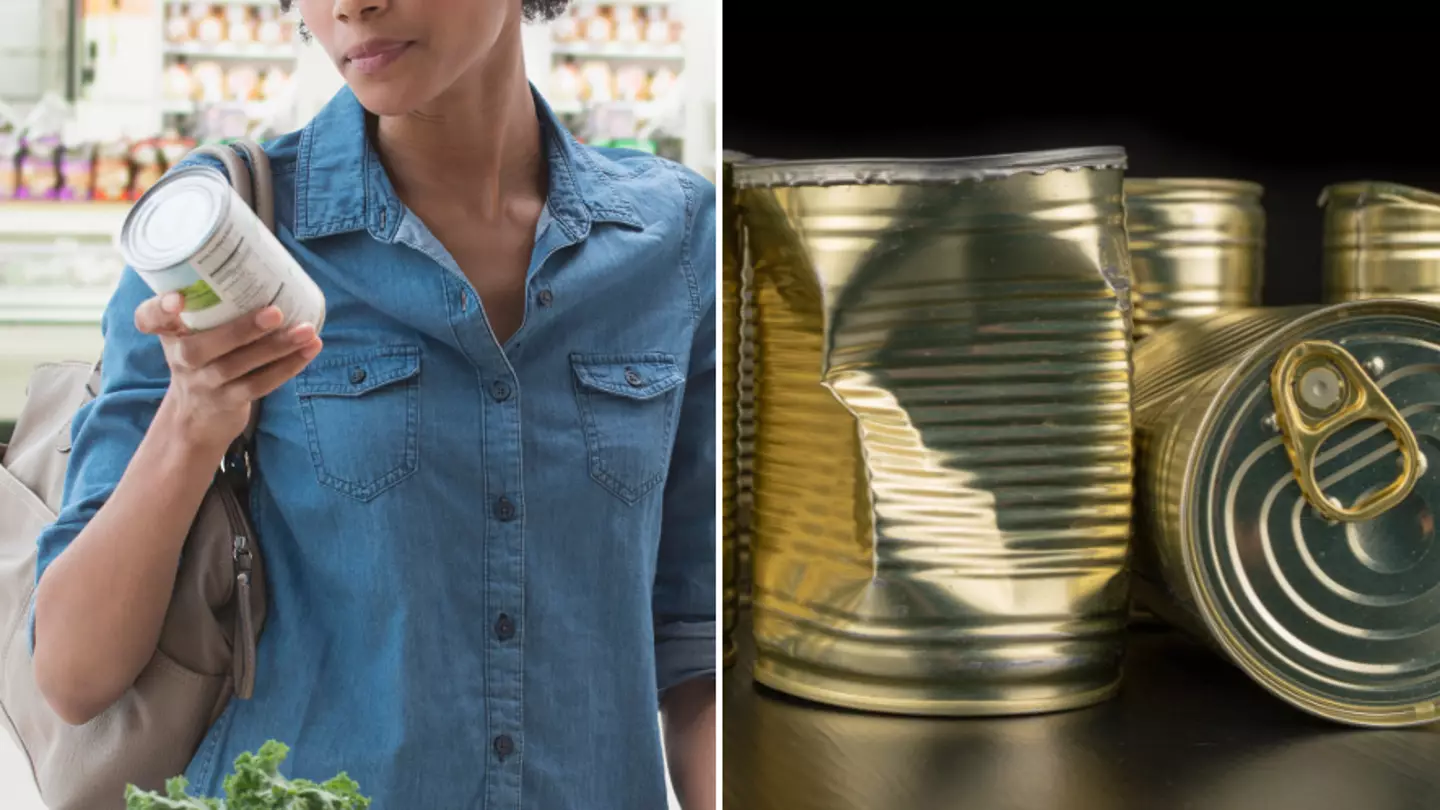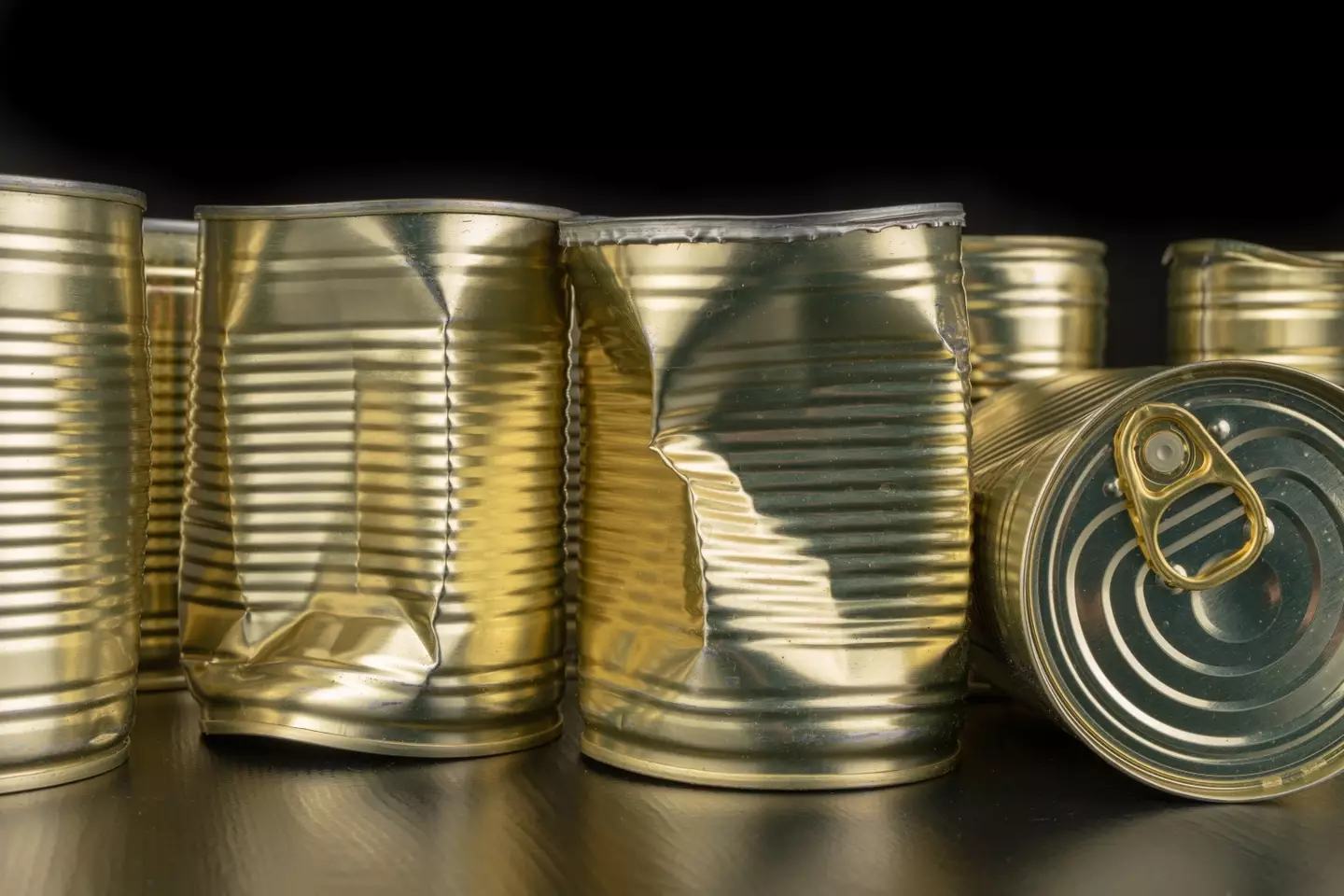
Many of us might not think twice if we see a dented can in the supermarket, especially as sometimes it feels near-impossible to find one that isn’t damaged in some way.
Hell, some of you might even be bold enough to use it as an excuse to cheekily ask for a bit of money off.
But is it really a good idea?
Some of us will have heard that old wives’ tale about dented cans being a total no-go, but is it just advice that’s stuck in the past? Or can it really be as harmful as we’ve been told?
Advert
According to officials, there is some concerning truth to the widespread warning – although there’s a caveat.

According to the US’ Food and Drug Administration (FDA), as long as a can is in ‘good shape’, the contents ‘should be safe to eat’.
However, it warns: “NEVER USE food from cans that are leaking, bulging, or badly dented; cracked jars or jars with loose or bulging lids; canned food with a foul odor; or any container that spurts liquid when opening.”
While you may not have stumbled upon a bulging can, and a leaking one would hopefully be something you’d steer well clear of anyway, it’s fair to say that you might be tempted to take the risk with a dented product.
But the FDA said these cans could contain what’s known as Clostridium botulinum, bacteria that can cause a but life-threatening condition called botulism.
“While extremely rare, a toxin produced by it is the worst danger in canned goods,” it continues.
“DON'T TASTE SUCH FOOD! Even a minuscule amount of botulinum toxin can be deadly. Recommended storage times are as follows: two to five years for low-acid foods (such as meat, poultry, fish, and vegetables; 12-18 months for high acid foods (such as juices, fruit, pickles, tomato soup, and sauerkraut).”

The UK government also has similar advice, but explains that denting may only be an issue if it’s particularly severe.
“Food should remain fit to eat if a can is dented, providing the denting of the can is shallow and there are no other obvious signs that the can is damaged,” it says, warning: “However, if the denting is deep, the can may have a hidden split, hole or break in the seal.
“This could result in a can that is no longer a reliable container. If this is the case, the food inside should not be eaten. If the denting has caused the can to rust, the food inside should not be consumed either.”
The government also agrees you should avoid eating any food from a ‘visibly bulging can’, as it could be due to the presence and growth of ‘unsafe’ microorganisms inside, which in turn create a build up of gas.
“If consumers have purchased cans which are visibly bulging, they should return them to the retailer,” it adds.
Topics: Food and Drink, Health